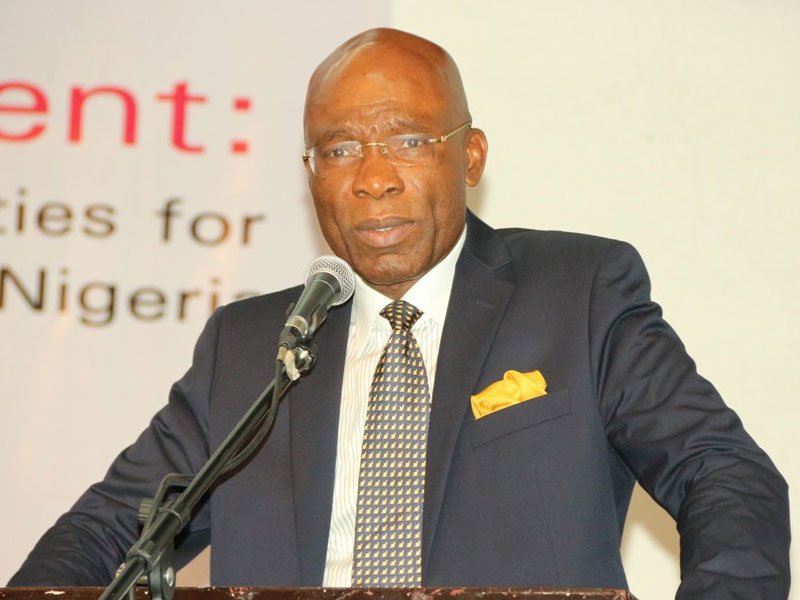The House of Representatives could reopen the probe into an alleged $1.348 billion power sector fraud levelled against General Electric (GE) and Rockson Engineering Nigeria Ltd.
The issue, which has lingered for years, will not be swept under the carpet, vowed chairman of the House Committee on Power, Dan Asuquo, in an interview at the weekend.
He expressed surprise that the authorities have not yet taken action on findings by relevant committees of the previous National Assembly, insisting the legislature would push for the refund of the alleged stolen money.
“The National Assembly has done its work. It has come out with a report. The report is there for anybody to see and use. If you talk about Rockson, in collaboration with GE, they have issues of which Nigerians should ask questions. If somebody is not performing, the law is there.
“We cannot promote the fleecing of taxpayers’ money. If somebody is irresponsible, the law is clear; you blacklist and terminate, as long as you’ve kept your own part of the contract. We will call for that refund, if that magnitude of padding, waste and corruption has been done,” said Asuquo.
The allegation, which came via a signed petition by about 10 civil society organisations and dated September 26, 2018, was received by the office of the acting chairman of the Economic and Financial Crimes Commission, Ibrahim Magu, on September 27, 2018.
President Muhammadu Buhari had recently wondered how a former government allegedly spent $16 billion on the sector without results. He also accused the National Assembly of not exercising adequate oversight on the sector.
The two companies were blacklisted in a 2008 House of Representatives report.
The Association of Power Generation Companies (APGC) meanwhile said since June 2018, power Generation Companies (GenCos) have not received payment from the Nigerian Bulk Electricity Trading Plc (NBET) for electricity generated.
APGC’s Executive Secretary Dr Joy Ogaji disclosed this in an interview with the News Agency of Nigeria (NAN) in Abuja yesterday. According to her, GenCos were being owed N500 billion for power generated from 2013, when they took over electricity generation, to December 2016.
She said: “The GenCos debt is classified into about three categories. So, when you are talking about debts, before even NBET came, market operators owed GenCos. If you calculate all that debt from 2013 to December 2016, GenCos’ debt was about N500 billion. This debt that we are talking about is without interest, because the Power Purchase Agreement (PPA) says if they delay payment, GenCos are entitled to interest. So, this amount is without interest. It does not also cover the cost for available capacity.”
She said further: “GenCos make capacity available. So, the power that is being rejected…it does not cover that one, because that is a different cost. From 2017, NBET, through Federal Government’s Payment Assurance Guarantee, has only been paying 80 per cent and there is 20 per cent shortfall till date. And for this year, since June, we have not been paid.”
On GenCos meeting their obligation on payment to gas companies, Ogaji noted: “GenCos have been taking loans from banks to be able to meet their obligations in the market and put power on the grid. When we don’t generate, we are called saboteurs. They will start saying that the owners of the GenCos are PDP members; that is why they are not generating. But the government is not looking at the cost implication of putting power on the grid and you are not paying for it. There is no business person that will want to continue business when he is not getting anything on it. And upon that you are being accused that you are a saboteur.”
The APGC executive secretary however said GenCos were engaging NBET on the matter.
But the Head Corporate Communication of NBET, Mrs. Henrietta Ighomrore, described the alleged non-payment since June as inaccurate. GenCos have always received their payment as at when due, and at no time did NBET withhold payment to GenCos, she said.
“NBET does not retain any money. Every money we receive from the DisCos, we immediately pay it to the GenCos to settle their invoices,” she explained, stressing it is important to understand how payments are made in the electricity market.
“For instance, if you have January’s invoice, that invoice will be coming to you around the end of February or early March. The generating companies generate and then they send to us and then we send to the DisCos. At the end of the month, the Market Operator (MO) will read the meter and then raise the market settlement statement.”



